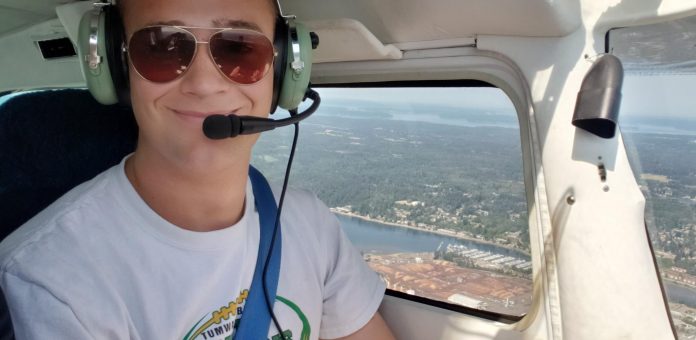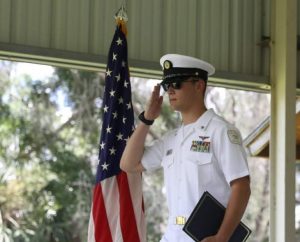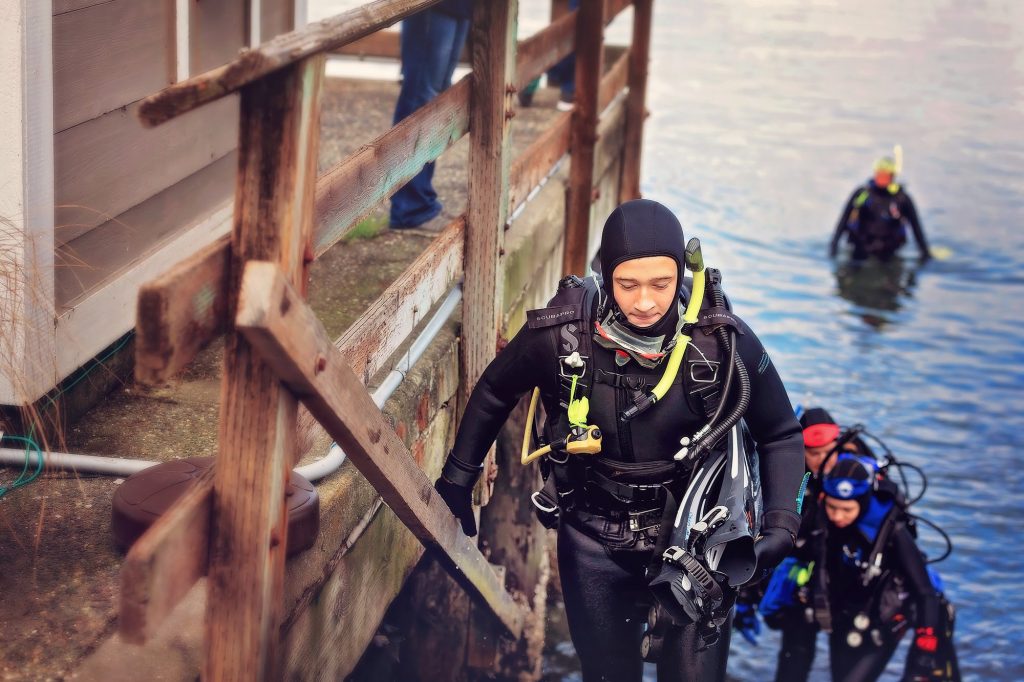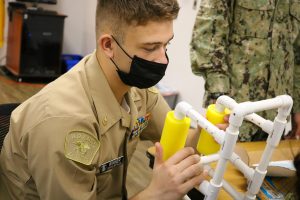
Chief Petty Officer Jackson Winner, of the United States Naval Sea Cadet Corps, has demonstrated ambition, drive and fortitude. Those attributes have served him well. After he graduates from Tumwater High School, he is off to The U. S. Naval Academy. Pursuing a dream that started when he was 12 years old, Winner has stayed the course, focused on his goal and put forth the effort to attain it. That path led him to an appointment at the esteemed military school.
 Winner has been participating in the USNSCC, the Sea Cadets, since 2016. He is part of the Capitol Battalion in Olympia. It is a U.S. Navy sponsored and U.S. Coast Guard supported youth program. Cadets go to naval bases and military installations to train. According to secadets.org, only 10-12% of those who graduate the program enter the U. S. Naval Academy that same year. As a cadet, Winner took correspondence courses, took part in drills, hands-on training exercises and performed in a leadership position. He participated in more than 67 hours of volunteer work in the community such as helping with marathons in Olympia, Fourth of July parades and as color guard for veterans’ events.
Winner has been participating in the USNSCC, the Sea Cadets, since 2016. He is part of the Capitol Battalion in Olympia. It is a U.S. Navy sponsored and U.S. Coast Guard supported youth program. Cadets go to naval bases and military installations to train. According to secadets.org, only 10-12% of those who graduate the program enter the U. S. Naval Academy that same year. As a cadet, Winner took correspondence courses, took part in drills, hands-on training exercises and performed in a leadership position. He participated in more than 67 hours of volunteer work in the community such as helping with marathons in Olympia, Fourth of July parades and as color guard for veterans’ events.

Separate from the 125 in-person drills that he attended, he also completed extended trainings, 15 of them. Just as a few examples, he completed the Federal Aviation Administration ground school, SCUBA training, wilderness survival, more than one STEM program and basic medical training. On top of all that, he is a full-time student and an athlete. “For as long as I can remember,” shares Winner about his successes, “earning an appointment to any of the service academies has been my primary goal. I am truly honored to have received these appointments, and I would like to thank my parents, teachers, coaches, Sea Cadet adult leadership and the USNSCC for helping me along this path.”
Along the pathway to his goal, he completed the Petty Officer Leadership Academy and cadet recruit training. One leadership experience required Winner to staff the recruit training as a squad leader with four to five people in his charge. It presented a unique and challenging situation since the recruits were older than him. “It’s not a position you hold,” explains Winner, “but a way you hold yourself that allows people to follow you, a way to get people to trust you. I was 14, and they were 17- and 18-year-old trainees. I had to show them I had experience and was able to lead them.” It was one of many challenges the high school student tackled in pursuit of his goal. But again, perseverance pays off. Winner was the 2020 Cadet of the Year for the U.S. Naval Sea Cadet Region 13 as well as for the USNSCC national headquarters area for the Pacific Northwest, Hawaii and Guam. His rank as Chief Petty Officer is the highest rank achievable in the Sea Cadets.

The goal to be a military officer is Jackson Winner’s target. The requirement is graduation from a military service academy. One must first succeed in the arduous application process that requires a stellar resume. He’s got it. One must face a board of interviewers, some of which are military veterans, civilians and panel members who have graduated from an academy themselves. He’s done it. And, one must receive a congressional nomination. He is Congresswoman Marilyn Strickland’s primary choice. “On average, of the 3,000 students who fully qualify for the Naval Academy, 1,400 will receive appointments,” reads the Naval Academy admissions webpage. In December of 2021, Winner became one of those accepted to the academy.

The news came by mail. An envelope arrived just days before the Christmas holiday, and then another arrived on Christmas Eve. Not only did Winner receive an acceptance letter from the U.S. Naval Academy, but he also received one from the U.S. Military Academy West Point. “The thing that drove me throughout my life has been my goal to join the Naval Academy,” Winner says. “Ever since middle school, everything I’ve been involved in, it has been in the back of my head whether it would help me get it.” His focus has paid off. He also attributes his success to the adult leadership in the program who helped mentor and guide him.
The next step for Winner is college. Naval academy graduates earn a bachelor’s of science degree and are then commissioned as either a second lieutenant in the Marine Corp or an ensign in the Navy. Winner has yet to decide whether he will join the Navy or the Marine Corp. He has toured both of the military service academies. His first trip to the Naval Academy was as a middle school student to see their STEM program. During college, he hopes to major in robotics or electrical engineering since he has an interest in building things and has experience building computers and drones. He’s excited to start a career.


















































